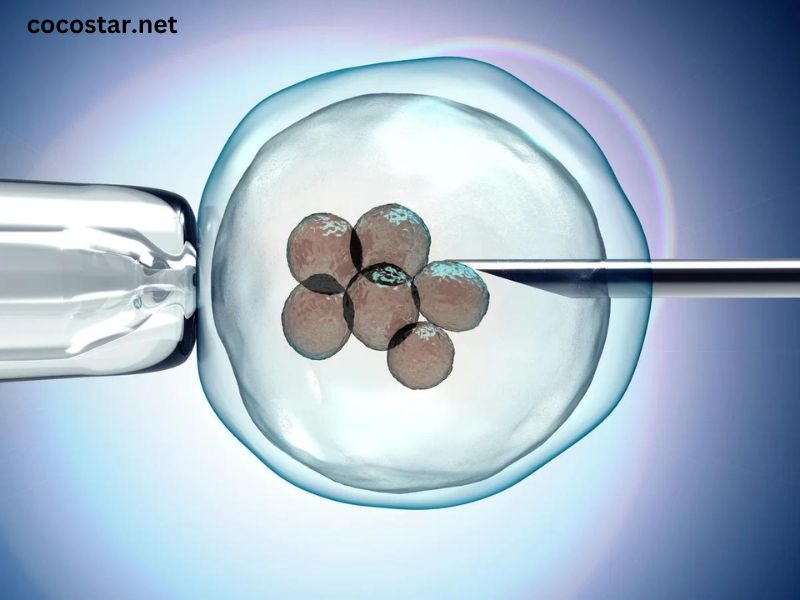Egg freezing, or oocyte cryopreservation, has become an increasingly popular option for individuals wanting to preserve their fertility. While the medical and technical aspects of egg freezing have been widely discussed, a vital part of the conversation has shifted toward mental health. The decision to freeze one’s eggs is deeply personal, intertwined with emotions, hopes, anxieties, and societal pressures. Mental health plays a crucial role in how individuals navigate this process. So, where are people talking about mental health in relation to egg freezing?
This article explores the key platforms and communities where mental health discussions about egg freezing are happening, shedding light on how these conversations are shaping perspectives on fertility preservation.
1. Online Forums and Support Groups
The internet has become a go-to resource for people seeking advice and support, especially when it comes to personal issues like fertility and mental health. Numerous online forums and support groups cater to individuals exploring egg freezing as an option, providing a safe space to discuss the emotional and psychological implications.
Fertility-Specific Forums
Websites like Fertility Network UK, IVF.ca, and What to Expect have dedicated spaces where individuals share their experiences about fertility preservation. Users openly discuss the mental health challenges they face while deciding to freeze their eggs, such as anxiety about the future, societal expectations, and the fear of the unknown. These forums serve as a sounding board where people receive empathy and advice from those who have gone through or are considering the same process.
Subreddits
Reddit has become a hub for niche communities, and the r/infertility and r/eggfreezing subreddits are particularly active when it comes to mental health discussions surrounding egg freezing. The anonymity of Reddit allows people to be open about their vulnerabilities, whether they are grappling with the emotional toll of fertility treatments or dealing with the fear of not using the frozen eggs.
Redditors often provide emotional support to one another, share coping mechanisms, and normalize feelings of uncertainty and distress. For many, these subreddits offer a sense of camaraderie in what can often feel like a lonely journey.
2. Social Media Platforms
Social media platforms, particularly Instagram, Facebook, and TikTok, have become modern-day spaces for discussing fertility and mental health. Influencers, medical professionals, and everyday users are leveraging these platforms to break the stigma around fertility preservation and its emotional impact.
On Instagram, hashtags like #EggFreezingJourney, #FertilityAwareness, and #MentalHealthMatters have grown in popularity. Many individuals use Instagram as a diary to document their experiences with egg freezing, often highlighting the mental and emotional aspects of the process. These posts are often raw and authentic, with users discussing the fear of running out of time, societal pressures, and the emotional strain of fertility treatments.
Influencers such as Candice Brathwaite and Emma Cannon have also used their platforms to discuss the emotional complexities of egg freezing. Their openness about the mental toll involved in fertility decisions has sparked broader conversations about the need for emotional support alongside medical intervention.
Facebook Groups
Facebook remains a powerful tool for creating community support, and various private and public groups are dedicated to fertility preservation. Groups like Egg Freezing Support Group and IVF & Egg Freezing Emotional Support have thousands of members who share personal stories, advice, and emotional support. These groups often provide a less public, more intimate setting than Instagram or Reddit, where individuals feel safe sharing their mental health struggles without fear of judgment.
TikTok
TikTok’s short-form video format has also become a platform for spreading awareness about fertility and mental health. Videos tagged with #EggFreezing often feature individuals sharing their emotional experiences with fertility preservation. The platform’s algorithm helps these videos reach a broad audience, including people who may be grappling with similar mental health challenges. TikTok creators often use humor or storytelling to connect with their audience, making the conversation around egg freezing and mental health more approachable and less clinical.
3. Fertility Clinics and Mental Health Professionals
Fertility clinics are increasingly acknowledging the importance of mental health in the egg-freezing process. Many clinics offer counseling services as part of their treatment packages, recognizing that emotional well-being is just as important as physical health.
In-Clinic Counseling Services
Fertility clinics like CCRM and Shady Grove Fertility now offer mental health counseling as an integral part of the egg-freezing journey. These services often include individual therapy sessions with licensed psychologists who specialize in reproductive health. Patients are encouraged to discuss their fears, anxieties, and emotional hurdles before, during, and after the egg-freezing process.
Many people have reported that these counseling services help them navigate complex emotions like grief, guilt, and the pressure to make the “right” decision. By addressing these mental health concerns in a clinical setting, patients feel more equipped to handle the psychological toll of fertility preservation.
Fertility Coaches
The rise of fertility coaching has added another dimension to mental health support for those considering or undergoing egg freezing. Fertility coaches like Tasha Blasi and Monica Bivas provide personalized emotional support, guiding individuals through the rollercoaster of emotions that often accompanies fertility treatments. These coaches often help their clients focus on mental well-being, offering techniques like mindfulness, meditation, and cognitive behavioral strategies to manage stress and anxiety.
4. Podcasts and Webinars
The rise of podcasts and webinars has made it easier for people to engage with mental health topics in the context of egg freezing. Experts and real-life individuals share stories, insights, and practical advice, often focusing on the emotional challenges involved.
Fertility Podcasts
Podcasts like “Big Fat Negative” and “The Egg Whisperer Show” feature in-depth discussions about egg freezing and mental health. Guests often include fertility specialists, therapists, and individuals who have gone through the process themselves. These podcasts help normalize the emotional struggles that come with fertility decisions, such as the fear of regret or the emotional strain of uncertainty about future outcomes.
Webinars by Fertility Clinics
Many fertility clinics host webinars that specifically address the mental health challenges of egg freezing. Clinics like Extend Fertility and Ovation Fertility offer webinars led by mental health professionals, guiding attendees through the emotional aspects of the process. These webinars often focus on stress management, coping with societal expectations, and dealing with the emotional rollercoaster of fertility treatments.
By attending these virtual events, individuals can gain valuable mental health resources and connect with others facing similar challenges. The sense of community fostered by these webinars often helps alleviate feelings of isolation and anxiety.
5. Workshops and In-Person Support Groups
Though much of the conversation about egg freezing and mental health happens online, in-person workshops and support groups are also valuable resources. These spaces offer face-to-face interactions where people can openly discuss their mental health in a supportive environment.
Therapeutic Workshops
Some fertility clinics and wellness centers offer therapeutic workshops specifically designed for individuals considering or undergoing egg freezing. These workshops often focus on the psychological aspects of fertility preservation, helping participants process emotions like fear, hope, and anxiety.
For example, The Fertility Partnership in the UK offers workshops that include guided discussions, mindfulness exercises, and group therapy. Attendees often leave these workshops feeling more empowered and emotionally prepared to navigate the complexities of egg freezing.
Peer-Led Support Groups
In-person, peer-led support groups like those organized by Resolve: The National Infertility Association provide a space for people to discuss the emotional toll of fertility preservation in a face-to-face setting. These groups often meet regularly, allowing members to build long-term emotional support networks. In these settings, individuals can share their experiences, vent their frustrations, and offer mutual encouragement to others going through similar challenges.
6. Mental Health Apps and Online Therapy Platforms
With the growing demand for mental health resources, various apps and online therapy platforms have emerged as valuable tools for people undergoing egg freezing. Platforms like BetterHelp, Talkspace, and Headspace provide accessible ways for individuals to manage their mental health during the egg-freezing journey.
Online Therapy
Many individuals who freeze their eggs turn to online therapy platforms like BetterHelp and Talkspace for emotional support. These platforms allow users to connect with licensed therapists via video, phone, or messaging, providing a flexible and convenient way to address mental health concerns. Therapists on these platforms often specialize in reproductive health, offering tailored support for the unique emotional challenges of fertility preservation.
Mental Health Apps
Apps like Headspace and Calm offer mindfulness and meditation exercises that help people manage the stress and anxiety associated with egg freezing. These apps provide users with tools to practice relaxation techniques, reduce stress, and cultivate emotional resilience, making them invaluable resources during the fertility preservation process.
Conclusion
As egg freezing becomes more common, the conversation around mental health has grown in parallel. From online forums and social media platforms to fertility clinics and mental health apps, there are numerous spaces where people can openly discuss the emotional challenges of fertility preservation. By addressing the mental health aspects of egg freezing, individuals are better equipped to navigate the psychological complexities that come with preserving their fertility, ensuring they are mentally and emotionally prepared for the journey ahead.



